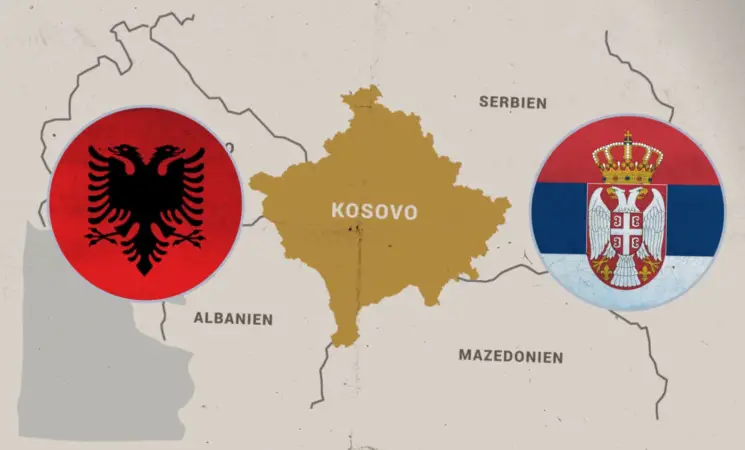Wednesday, igniting urgency in the call to fortify military forces in Kosovo and secure its volatile borders with Serbia. Rama, a vocal advocate for regional stability, delivered a stark warning that recent outbreaks of ethnic violence in Kosovo could serve as a dangerous spark, potentially engulfing the entire Balkan region in a tumultuous conflict.
In a gripping account following an informal gathering of Western Balkan NATO members in North Macedonia, Rama painted a vivid picture of Kosovo’s border with Serbia spiralling “out of control.” He underscored the alarming escalation of illegal activities, ranging from drug and arms smuggling to the infiltration of ultra-nationalists, all poised to unleash “great disturbances” across the region.
Kosovo, a former Serbian province that gained independence through a historic NATO military campaign in 1999, continues grappling with similar tensions. Recent eruptions of violence have set off alarm bells, and there is a palpable fear among Western nations that Russia may exploit the unrest in the Balkans to divert attention from the ongoing conflict in Ukraine.

In the wake of Wednesday’s intense discussions, NATO Secretary-General Jens Stoltenberg, a central figure in the deliberations held in Skopje, absolutely assured that while NATO perceives no immediate military threat to its allies in the Western Balkans, tensions, particularly in Kosovo, are undeniably on the rise. Stoltenberg disclosed that NATO had bolstered its military presence in Kosovo, deploying an additional 1,000 troops armed with heavier weaponry, a testament to the organization’s commitment to preserving peace in the region.
“We are cautious, of course. We are closely monitoring the situation and will certainly do what is necessary to protect and defend our allies,” Stoltenberg declared, underscoring the gravity of the situation.
During his recent visit to Kosovo, Stoltenberg hinted at the possibility of deploying more peacekeeping troops, emphasizing the urgent need to address the unacceptable outbreaks of violence and bring the perpetrators to justice.
The complex geopolitical landscape is further complicated by Serbia’s steadfast refusal to recognize Kosovo’s formal declaration of independence in 2008.
Both countries aspire to join the European Union, with Brussels mediating a delicate dialogue between former adversaries. However, the EU has issued a stern warning, cautioning that a failure to compromise jeopardizes their chances of EU membership.
The high-stakes talks in Skopje drew in key leaders, including Prime Ministers Dimitar Kovačevski of North Macedonia and Milojko Spajić of Montenegro, along with Croatian President Zoran Milanović. Together, they grappled with the urgent need for decisive action to safeguard the fragile peace in the Balkans, setting the stage for a critical chapter in the region’s tumultuous history.








